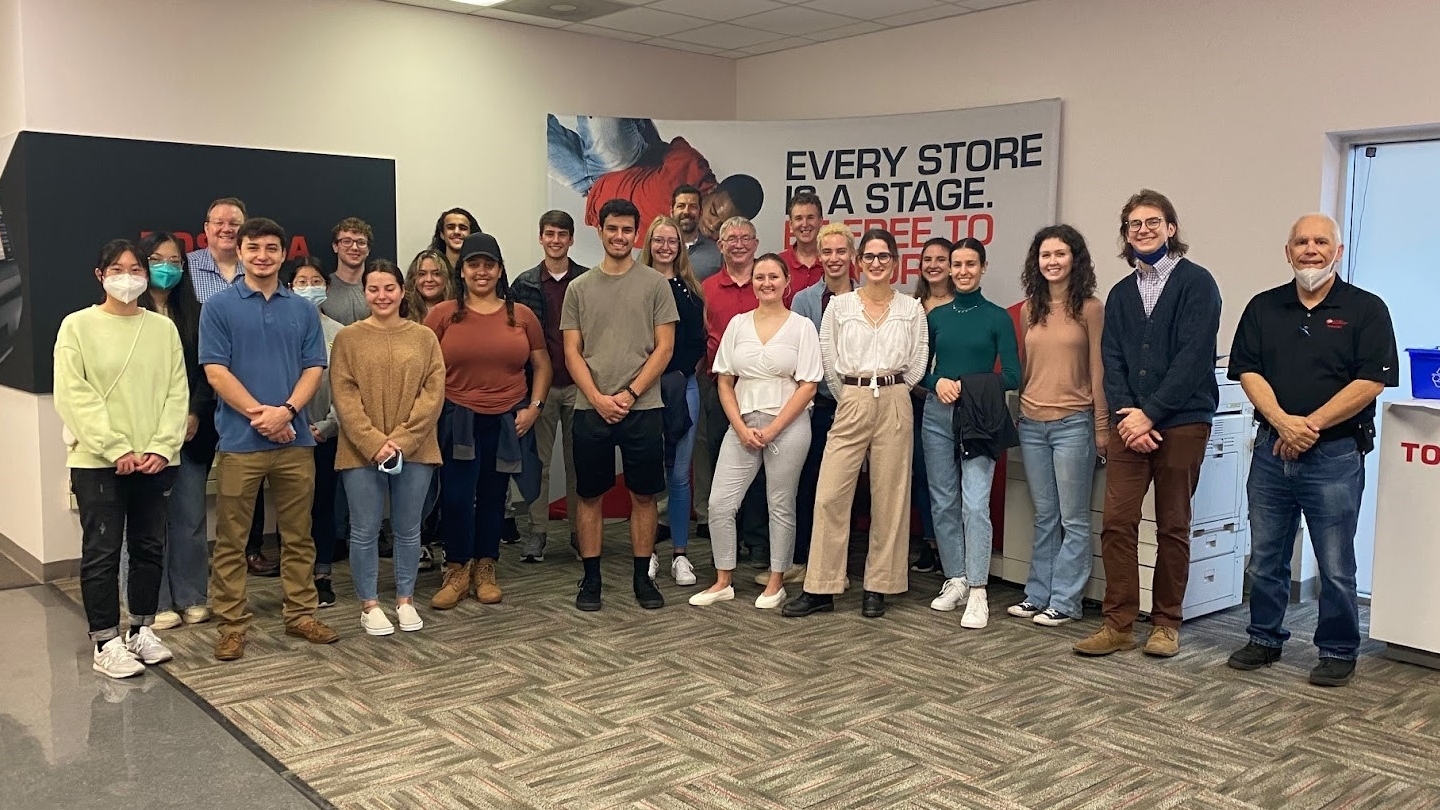Roundtable Event Brings Key Insights for Labor Management Solutions

Supply chain leaders from nine different companies gathered with NC State MBA students, executive advisors and thought leaders on February 28th to discuss solutions to the various challenges facing the supply chain job market.
“In the current marketplace, there is a massive shortage of labor, and warehouse/labor costs are escalating,” said Dr. Robert Handfield, Executive Director of the Supply Chain Resource Cooperative (SCRC) at NC State. “The idea for the event came after [Freight Handlers, Inc.] approached us to engage with them in working to develop materials related to understanding the key components of customer value, the nature of the market, and the issues associated with how to approach customers to create collaborative partnerships.”
According to Handfield, the SCRC conducted a preliminary survey that created a number of insights into some of the key dimensions of customer value and the process, but this workshop was designed to focus on those elements in more detail. “We proposed this roundtable as a means to share insights on various dimensions of outsourcing warehousing to third party relationships with executives from a variety of sectors,” said Handfield, who moderated the event.
[marketing-quote color=’blue’ quotes=’true’ align=’center’]There is no single solution that can be deployed to address this challenge. As leaders within each of our respective organizations, we are going to need to challenge the norms and focus on how to become an employer of choice.[/marketing-quote]
Specific topics discussed at the roundtable included the emerging gig economy, how to effectively engage the millennial generation workforce, and alternative options for labor outsourcing, employment models and hiring processes. “Labor shortages within distribution and transportation are a real issue that is likely going to get worse before it gets better,” said roundtable participant Brian Vetter, the US market supply chain lead for GlaxoSmithKline (GSK). “I was really looking to gain insights from others on how to best tackle and address this issue.”
 When asked what he gained from the event, Vetter said, “There is no single solution that can be deployed to address this challenge. As leaders within each of our respective organizations, we are going to need to challenge the norms and focus on how to become an employer of choice.”
When asked what he gained from the event, Vetter said, “There is no single solution that can be deployed to address this challenge. As leaders within each of our respective organizations, we are going to need to challenge the norms and focus on how to become an employer of choice.”
Vetter continued to say that, in order to challenge these norms, he and his peers will need to more carefully outline the potential career paths of individuals, leverage automation, and empower management at distribution centers to address localized issues, as opposed to trying to implement a one-size-fits-all solution. “We need to also evaluate ways we can customize overall compensation packages for individuals with respect to wages, benefits and vacation,” he added.
In addition to GSK, companies represented at the event included Advance Auto Parts, UPS, Ecolab, FHI, The Republik, Hanes, John Deere and Altria.
According to Dr. Handfield and the various MBA students that helped facilitate the event, key insights from the day’s discussions included:
- The challenges facing the current labor market are not going away anytime soon.
- New approaches are needed, such as the use of on-the-job apprenticeships programs that equip workers with the skills necessary for jobs in professional service roles.
- Organizations should consider implementing alternative hiring and employment practices, including applying in-depth interview and pre-screening processes, offering a mix of benefits packages, and demonstrating a clear career path to warehouse workers that incorporates mentoring by executive leaders.
- Managers should consider all potential needs and work-life balance issues of the workforce.
- Organizations need to explore tapping into a workforce early by visiting local high schools.
- There is potential for creating more predictive modeling approaches that allow employers to uncover patterns for retaining workers and better understand when and where people will leave.
- The use of Gig Economy Apps needs to be explored, keeping in mind that these may be useful on a limited basis for seasonal peaks and valleys, and may only work for a subset of the required jobs within a facility.
- Consideration should be given to exploring outsourced labor solutions as a means to work with companies that specialize in workforce recruiting and retention strategies.
The roundtable event was the second of the year for the SCRC, following January’s “The Intelligent Supply Chain” workshop that led to key insights on the modern applications of artificial intelligence in the supply chain industry.
For a more in-depth look at the key takeaways from the event, as well as a link to the white paper based on the day’s discussions, visit Dr. Handfield’s blog post here.
- Categories:


